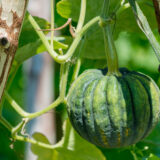Strengthen Conservation: Ensure food plant diversity is conserved more efficiently across botanic gardens, genebanks, and other repositories, as well as on farms and in natural habitats, enhancing effectiveness and building resilience of conservation efforts.
Increase Access and Use: Promote better distribution, sharing, and use of food plant diversity and associated data, encouraging efficient, cost-effective, and rational access policies.
Enhance Knowledge: Improve fundamental knowledge on food plant diversity, including taxonomy, systematics, uses, and conservation status assessments.
Increase Efficiency: Foster more effective collaboration and coordination among botanic gardens, genebanks, and other repositories, to improve ex situ conservation processes, including acquisition, processing, storage, and distribution of plant materials and associated data.
Recognize Complementarity: Define, report, communicate, and promote the complementary roles of botanic gardens, genebanks, and other repositories, as well as on farm and in situ habitat conservation programs, within international policy frameworks, ensuring their work is acknowledged and supported.
Build Capacity: Strengthen the capacity of stakeholders through shared training opportunities, knowledge exchange, and technical support, ensuring that institutions involved have the skills and tools necessary for long-term food plant diversity conservation, use, and awareness raising.
Raise Awareness: Inform practitioners, policy makers, and the public through outreach and education about the value of, and threats to, food plant diversity.






